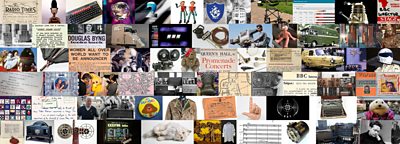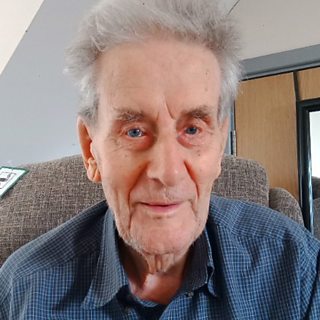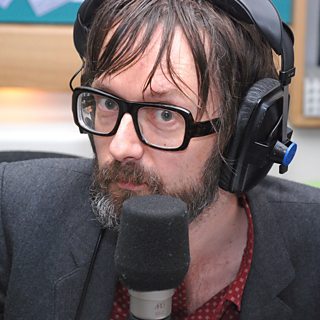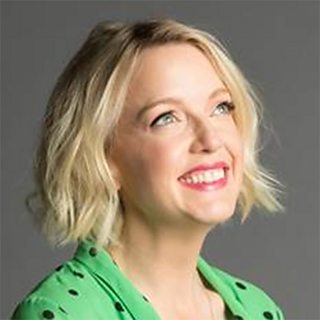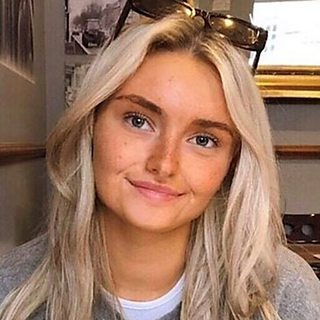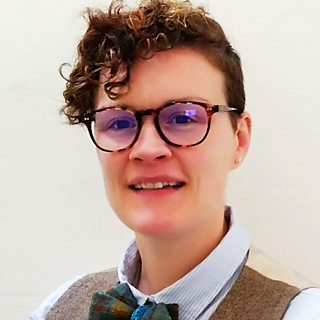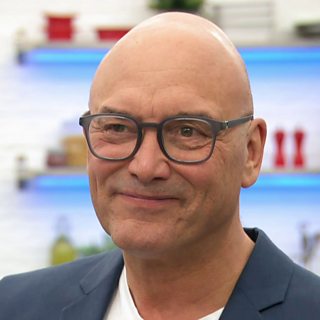Like many people my age, my first ����ý memories are of the radio: Uncle Mac on Children’s Hour in the 1930s. So I was pleased to see radio well represented in the Collection. It’s also what brought me to the ����ý in the first place – I’d been working in radio manufacturing in the 1930s, and thought a career in the ����ý sounded like a bright future.
Many objects in the collection triggered very specific memories for me, of a ����ý career that took me from my early days as a junior maintenance engineer in ����ý Birmingham through the Monitoring service at Caversham Park where I was promoted to senior engineer, and then on secondment to the Foreign Office going all round the world (looking after the short wave network).
So Broadcasting House was an obvious choice – for the people as well as the building itself. I loved the range of personalities who worked there: production staff, artists, reporters, technicians and managers. Their open minds, and the richness of the culture within the walls.
The same for Television Centre. I worked there for a spell on the development of Breakfast TV, in an office on the 6th floor overlooking the car park so I saw all the comings and goings. And I absolutely felt part of a powerhouse of ideas and viewpoints.
I knew David Attenborough a little when he was working there in a managerial capacity – before he went back to his first love, natural history programme making. So I was amused to see David’s initial application letter to the ����ý, stamped with its red rejection mark.
As to what I would add? Another building, I’m afraid! Caversham Park, home of ����ý Monitoring, so vital during the WW2 years and a melting pot of emigres and exiles – there were even a couple of princes, I recall? I think what I took away from Caversham – and all my time at the ����ý – was that as a society we should make good use of all the changes in communication. It gave everyone who worked there a common mission, a real sense of belonging that I loved,and a set of values that I still feel are as relevant now as then.
My first ����ý encounter was with Terry Wogan. I am getting ready for school, my mum is brushing my hair, and Terry – whom I envisaged as blond haired and in a cream arran sweater – is on the radio. It was my first experience of a radio person: just the voice, and you fill in the rest (often wrongly).
I’ve been thinking a lot about collections recently, so leapt at the chance to pick a few objects from the ����ý 100 collection. First up is the Testcard. Like many people, I found it very scary as a kid. The girl was looking directly at me, and there’s a funny collision of things going on: the natural and ordinary caught in that frame of technical geometry. When I was an art student at Central St Martins, I made a video recreation of the testcard, called Sweet Exorcist: Testone, where the girl gets to escape.
Next, it had to be something music-related, and I chose the extraordinary Lip Mic. I like the simple ingenuity of it: there’s the problem of how to commentate in a noisy environment and some engineer comes up with this clever object. It took me back to Morocco when I was recording a programme for R4 Wireless Nights with the Master Musicians of Joujouka. The only way I could exist inside that extraordinary music but also offer a clear commentary was with that ingenious lip mic.
My last object is ����ý Television Centre itself, in West London. Now I live round the corner from it, but I first went there in 1993 to be on a pop quiz show. In a break from filming, I went with some friends in search of the Blue Peter garden. And there we sat, reflecting on the place where all those formative shows had come from. I really credit the ����ý for giving me so much of my cultural education, for giving me access to things I would never ordinarily have come in contact with. And no ads!
One thing to add – and it’s a glaring omission – is the original Top of the Pops sign. That show had an incalculable influence on what I ended up trying to do. I saw all the great pop performers, every Thursday, in one place. It was formative.
My ����ý story began with Play School and my Mam sewing me my very own Humpty. I remembered that when I interviewed the wonderful Floella Benjamin on Desert Island Discs, and all those early memories came flooding back. Then jump forward, it was all the family laughing at The Young Ones, the alternative comics of the 80s, and Radio 4 always there in the background…
Which leads me to my first object from your 100 Objects: the 2LO Transmitter, where ����ý radio really began. George Orwell talked about ‘the audience of one’ in his essay ‘Poetry and the Microphone’, and that’s the thing I really love about it as a medium. It’s intimate, personal. So I’d have to choose that. Of course, I couldn’t overlook Roy Plomley’s Desert Island Discs proposal letter. It’s just a genius format, a treasure that belongs to all of us, and it’s a huge honour for me to take it forward into its next 80 years
Music is a huge part of my life, and the studios at Maida Vale in particular, so I loved seeing the everyday objects that were part of the Radiophonic Workshop, and thinking about the men and women –but especially the women, Daphne Oram and Delia Derbyshire - who made a new form of music out of them. Contemporary electronic music owes such a debt to those pioneers.
And I was absolutely intrigued to read about the press around first female TV announcers in 1936. As a female presenter myself, it reminded me how a big part of what we do as presenters is to represent the audience. And of course it’s not just gender, it’s also representing other groups in society – region, race, sexuality. When I grew up I didn’t hear anyone speaking like me on the radio, now I’m one of many diverse voices and I think that’s one of the best things about this country.
And the object I’d like to add to the collection? It would be a canister from the very first Peel Session back in 1967. John Peel provided a launchpad for so many brilliant contemporary musicians – I even recorded a session with him with my band when I was 16! - so I’d love to have him included here.
My standout past ����ý moment is being a ����ý Young Reporter Competition winner and being invited to London. Growing up, I constantly wanted to read the news at lunchtime like the people I saw on the TV so meeting Newsround’s Ricky Boleto and listening to him talk about his work further spurred me to pursue my childhood ambition!
Coming from rural Wales - which is sometimes regarded as the middle of nowhere - seeing London for the first time was incredible. And participating in interviews really was a once-in-a-lifetime experience for me.
So ����ý Broadcasting House is my most adored object – it felt like the heart of the ����ý. Visiting there was particularly memorable for me since it was THE site I had never expected to see with my own eyes, just on television in the background of news programmes! It never occurred to me how massive the place is or its history.
If I could only add one thing to the collection, it would be a person rather than an object: Mr Huw Edwards. He is a ����ý reporting legend who's not only a Welsh broadcast star, but also has been doing it for over 30 years. So especially for Wales, I salute you Huw!
You can see some of Elen’s reporting here.
We are delighted to be working with the ����ý, bringing our collections together in their centenary year.
Here are 100 highlight objects with 100 different broadcasting stories, each lifting the lid on how the iconic sights and sounds of the ����ý were created.
The list features some really unique objects from the Science Museum Group collection – a personal favourite of mine is the Mirror Globe Ident, a glorious DIY mechanical device that the broadcast wizards turned into colour on screen. Another is the Vision Electronic Recording Apparatus (V.E.R.A.), a ����ý-original prototype videotape format that recorded a whole 15 minutes of television onto 5 km of tape.
But as well as the technological milestones are the icons of visual and sound design, from the mould used to create the original Dalek to the Radiophonic Workshop instruments improvised to create the mesmerizing (and occasionally terrifying!) music for Doctor Who and so much more.
On the horizon in Spring 2022 is the digitisation of the 1000 objects that make up the wider ����ý Heritage collection, to be made publicly accessible for the very first time. And across the whole year we will launch our Broadcast 100 programme of events and exhibitions covering the Science Museum Group in London, Manchester and Bradford.
This will include ‘Switched On’, our special exhibition at the National Science and Media Museum from July, which will explore the fascinating past of broadcast technologies as well as future possibilities.
My earliest memories of the ����ý go way back – I am watching Andy Pandy with my grandmother from Plymouth, who thought Teddy was far too badly behaved for her liking. She called him something more explicit! Growing up, it was history I loved, and especially I Claudius, which gripped me. I told Derek Jacobi that the day I met him, and he gave me the ‘Claudius’ face there and then. What an actor!
So I loved this collection. I wanted it all. But especially the Orwell statue, as I’m a big fan of his writing, and the last time I walked into Broadcasting House I was delighted to see his statue there next to the entrance and to give him a passing nod. Those books – 1984, Animal Farm, Keep the Aspidistra Flying – are ones I read and reread.
The other object I loved in particular was The Beatles record, All You Need is Love. I’m mad about their music, though it came to me second hand as I was too young for their early songs. But I had no idea that the ����ý had commissioned that song as part of Our World, the first international satellite link up. What a great idea!
If I could add just one object to this collection, it would be this: the all-day breakfast they used to serve in the canteen at Broadcasting House, when I was doing Veg Talk with Charlie Hicks… It never arrived till lunchtime but it was worth the wait!
